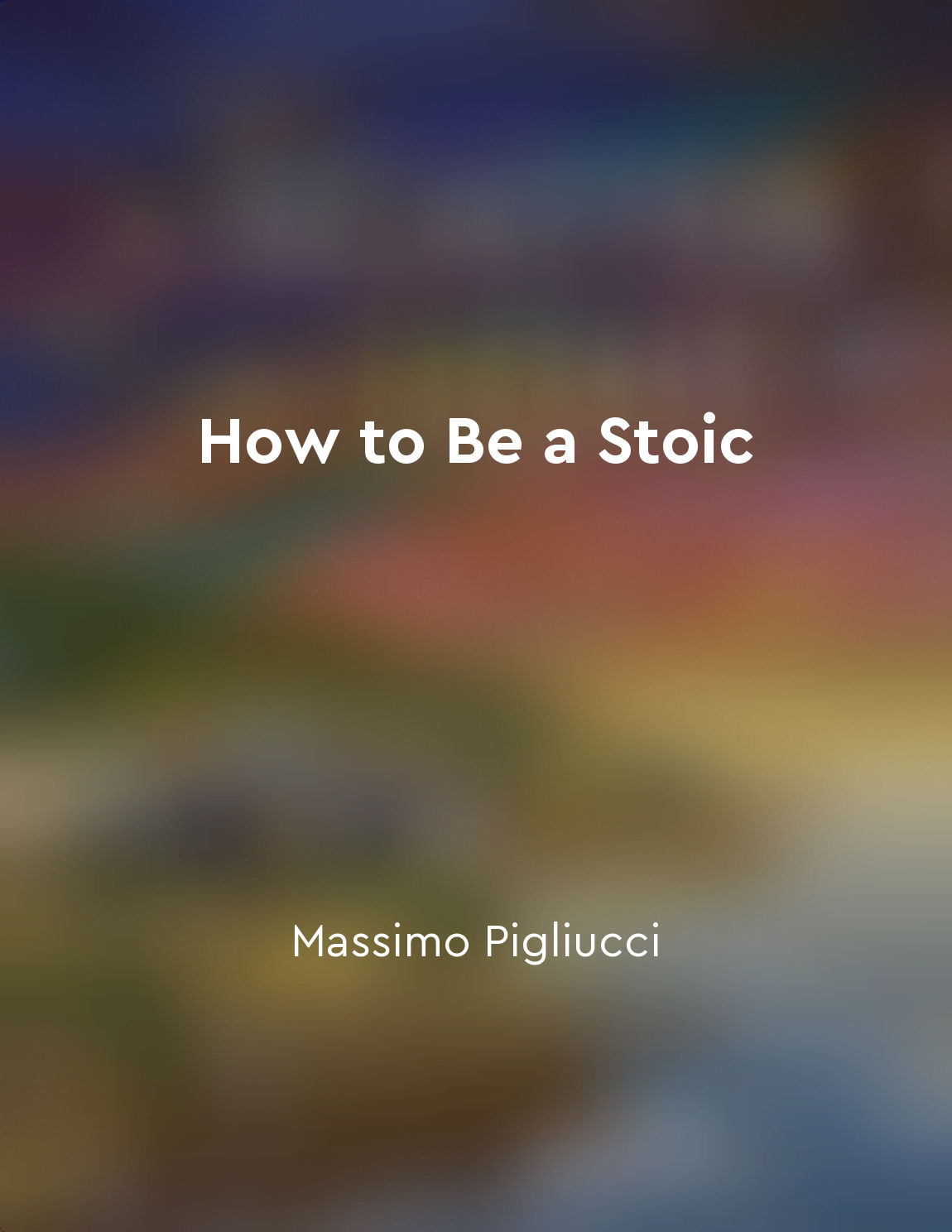Stoicism offered a practical guide to living a meaningful and fulfilling life from "summary" of Stoicism by John Sellars
Stoicism, as a philosophy, provided individuals with a set of principles and practices that aimed to help them navigate the complexities of life in a meaningful and fulfilling way. Rather than offering abstract theories or metaphysical speculations, Stoicism focused on practical guidance that could be applied in everyday situations. This emphasis on practicality was one of the key strengths of Stoicism, setting it apart from other philosophical schools of thought at the time. Central to Stoic philosophy was the idea that individuals have control over their own thoughts, emotions, and actions. By cultivating inner virtues such as wisdom, courage, and self-discipline, individuals could learn to respond to external events with equanimity and resilience. This approach enabled Stoics to face challenges and setbacks with a sense of calm and composure, rather than being overwhelmed by fear or anxiety. The Stoics also emphasized the importance of living in accordance with nature, both in terms of external nature and one's own inner nature. This meant accepting the inevitable changes and uncertainties of life, rather than resisting them or seeking to control them. By aligning oneself with the natural order of the universe, Stoics believed that one could find peace and contentment, regardless of external circumstances. Another key aspect of Stoic philosophy was the idea of focusing on what is within one's control, rather than worrying about things that are beyond one's power. This helped individuals to avoid unnecessary stress and frustration, allowing them to direct their energy towards what truly matters. By prioritizing inner qualities such as virtue and moral excellence, Stoics sought to cultivate a sense of purpose and meaning in their lives.- Stoicism offered a practical and down-to-earth approach to living a meaningful and fulfilling life. By emphasizing self-mastery, resilience, and inner virtue, Stoics were able to navigate life's challenges with grace and dignity. This practical philosophy continues to resonate with people today, offering timeless wisdom and guidance for those seeking to lead a more meaningful existence.
Similar Posts
Stoicism promoted the idea of living in accordance with one's own nature
The Stoics believed that human beings are rational animals capable of living in harmony with the natural world. They argued tha...
Stoicism encourages us to practice gratitude and humility
Stoicism, as a philosophy, places great importance on the virtues of gratitude and humility. Practicing gratitude allows us to ...
Stoicism encouraged mindfulness and selfawareness
Stoicism has long been associated with the idea of mindfulness and self-awareness. The ancient Stoics believed that one should ...
It encourages us to focus on our character and integrity
The Stoic philosophy emphasizes the importance of focusing on our character and integrity. By adopting a Stoic mindset, we are ...
It encourages us to accept hardships as opportunities for growth
The Stoic philosophy teaches us to view hardships not as obstacles to be avoided, but as opportunities for personal growth and ...
Greek drama and poetry reflected the joys and sorrows of human life
The ancient Greeks had a keen understanding of the complexities of human emotions and experiences. Their dramas and poetry were...

Practice empathy and compassion towards others
Stoicism teaches us to see others as fellow human beings, with their own struggles, fears, and hopes. By practicing empathy, we...
Aesthetic experiences contribute to moral development
Jacob Risinger argues that aesthetic experiences play a crucial role in shaping an individual's moral development. By engaging ...

Seneca discusses the benefits of facing challenges with courage
Seneca and Marcus Aurelius both emphasize the importance of facing challenges with courage in their writings. They believe that...
Accepting the impermanence of emotions can lead to freedom
The Stoics believed that emotions are fleeting and impermanent, like clouds passing in the sky. By recognizing this reality and...

